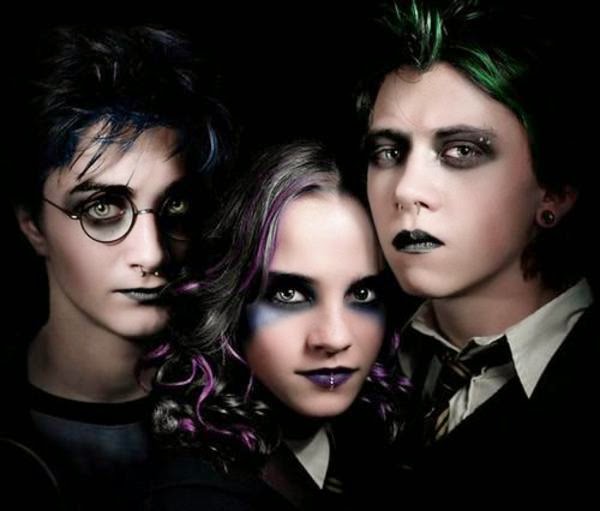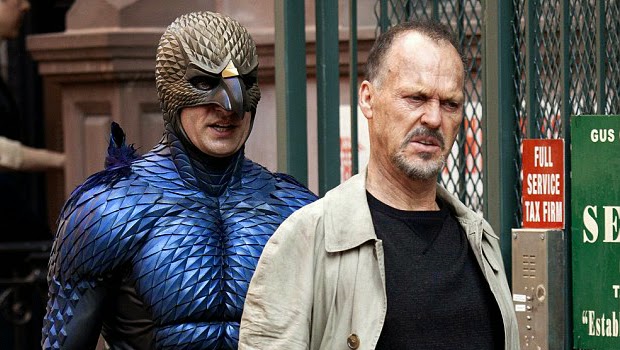Ever watched a movie and came away thinking, "Man, that
one plot point really sucked the life out of everything else"? It happens
quite often. Truth is, there's a great deal of pressure on the writer to not
only fill 90-180 minutes of screen time, but to make it all important, unique and consistent. So, while some of the points
in this article are, for the most part, inexcusable on the surface, I'm going to take you
through why the writer(s) may have
thought to include them. Also, SPOILER ALERT.
1) Midi-chlorians - Star Wars Episode 1: The Phantom Menace
I was born in 1990, which means I was 8 going on 9 by the
time The Phantom Menace came out -
arguably the perfect age to enjoy that film. Anakin Skywalker wasn't a whinny
little brat to me. He was aspirational.
Of course, looking back now, my appreciation for the movie has somewhat skewed,
mostly thanks to the ingenious Red Letter
Media review (seriously, look it up), but there was one moment that stuck
out, even as a kid as a little icky - the reveal that the Force, arguably the most beloved invisible power source in cinema
history, was just science.
Midi-chlorians, as described by the ever-wise Liam Neeson, are
a microscopic organism present in all living cells, and large quantities allowed
the host to communicate with the Force. Ever more gross is the suggestion that
Anakin was conceived by
midi-chlorians... So how can I possibly defend this? Well, what George Lucas
was trying to convey in the moment was just how
powerful Anakin was as a boy,
without implicitly showing him using the Force. The logical way to gauge
something's power level in Science Fiction (or in Dragonball Z) is to arbitrarily stick a number on it that is way
higher than everyone else's - in this case, a midi-chlorian count. So while he
may have inadvertently pooed on his own legacy, Lucas actually managed to
convey the ongoing theme of the prequels, power, in quite a logical, efficient manner.
2) Superman Does A
Bad Thing - Man of Steel
I think the thing that some audiences forget about superhero
origin stories is that they're origin stories from beginning to end. The
"origin" part doesn't stop as soon as they've donned the costume for
the first time. In fact, the whole point of Man
of Steel is for Kal-El to decide which
origin he should place his faith in - his birthplace of Krypton, or his
adoptive home of Earth. Both come with vastly different ideologies, personified
by Kal's two fathers, Jor-El and Jonathan Kent. One suggesting he should stand
above the humans, inspiring them to find their own greatness. The other warning
him that humans fear what they can't control or understand. In my opinion, this
dilemma visibly weighs upon Kal in every scene - the mark of a compelling
movie.
Then Zod shows up and things get a little muddy. Zod
represents the extreme of what Jor-El proposed, standing so far above those
weaker than him that they practically have no right to exist. By this stage,
the newly appointed Superman (not that he even gets called that directly)
hasn't even had time to save a cat from a tree, let alone stop any previous global
scale invasions. It all comes down to a fight between Supes' and Zod that
decimates half of Metropolis, and ending in a choice - should he kill Zod to
save a family of humans? With one neck snap, Clark makes his choice, but he's
found his balance. Earth is his home, but Superman can't show weakness. Even in
that following scene where he destroys the drone, and jokes with the military, more
like the traditional Superman we know, there's a sense that he's guarding
himself. It's likely now that he won't kill again, but find another way to keep everyone on Earth safe. However you feel about how this was all handled, there's still some
aftermath to be dealt with...
3) What Happened to
Llewelyn Moss? - No Country For Old Men
No Country For Old Men
is a gripping, cat-and-mouse, neo-Western thriller about Llewelyn Moss, a
man who happens upon the scene of a drug deal gone awry and a case filled with
2 million dollars. Hot on his tale is Anton Chigurh, a relentless hitman,
determined to reclaim the money no matter what stands in his way. This naturally
comes across as a pretty obvious protagonist vs antagonist relationship, and
that we're going to spend most of our time with Moss. For the most part, this
is true, but the movie is also bookended by Sheriff Bell, who laments about the
dark times in which they live.
So after we've followed the numerous near misses of Moss and
Chigurh, the focus starts to shift off of them again. In typical Coen Brothers
fashion, chance and circumstance blend together, as Moss' Mother-in-Law
unwittingly reveals his location to a group of Mexicans. Bell arrives late to
the scene of a gunfight to find that Moss has been killed, off-screen. He also has an opportunity to apprehend Chigurh, but
leaves. The truth is, Moss was never our protagonist. He didn't change or give
up the money, putting his wife in harm's way. He had to die. The real story is Bell's, who retires,
unable to stomach what the world has become.
4) Bane Isn't The Big
Bad -The Dark Knight Rises
Revealing who was really
behind it all is always a risky move in films where there's already quite a
traditional villain laid out. Bottom line, the twist has to be justified by the
relationship between the Big Bad and the Bigger Bad, as well as the reasons
behind the deception. In The Dark Knight
Rises, whilst Bane brings Gotham to its knees in honour of the fallen
League of Shadows, the real puppet-master (or mistress), turns out to be Talia
Al Ghul, daughter of Ra's Al Ghul, finishing off what her father started in Batman Begins. Bane in the comics is
typically defined somewhere between a physical powerhouse and a master
strategist, and here he's presented as a balance of the two.
However, to define Bane as a follower, rather than a
partner, is ignoring the fact that Bane is the one doing all the physical
legwork. Talia, pretending to be Miranda Tate, comes up with the plan but can't
get her hands dirty due to her political position. But they both share the same
desire - to see the people of Gotham suffer, born from their father-daughter
relationship cultivated in prison. There's strong motivations here, presented
in a grounded, if slightly comic book, way. Compare this to the infamous
Mandarin twist in Iron Man 3, where
the reasons for the deception are far more bizarre and unclear, and TDKR more than holds up (Disclaimer: I
personally loved the IM3 twist, but
more because it was mostly played for laughs - the actual logic behind it is
just baffling).
5) The Ending - I Am Legend
I may have written myself into a corner on this one... For
those of you who know the original Richard Matheson novel, you'll know that it
comes with a very clear ending and message. The story's nocturnal mutants,
known as the "Darkseekers", come face to face with self-proclaimed
legend, Robert Neville, in his lab. The alpha male draws a butterfly emblem on
the glass separating them, indicating the female that Robert has in his
captivity. In that moment, Robert realises that he is the monster to these
creatures, returns the female and ends up leaving New York with Anna and Ethan,
headed for a survivors camp with an antidote for the plague. Instead, the film gave us a
"I'll hold them off" moment, as the Darkseekers try to break through
the glass and Robert sacrifices himself by blowing himself and them up with a
grenade.
The strangest part about all this is that they filmed the
original ending, but test audiences didn't like or get it, so they changed it. Apparently
the idea of humans being the bad guy just didn't add up considering everything
else that had come before. It's not like the Darkseekers all cowered away in
fear, whilst Robert roamed the streets laying traps... Oh. If the message of
the novel is that at some point, humanity will stand in the way of evolution,
the message of the film is "Oh, Hell No We Won't". So, really it's a
glass half empty vs. a glass half full situation. It's not totally unbelievable
that audiences would want to come away with some semblance of optimism, right?
In both versions, they still find and deliver the cure - it's just a choice
between whether a depressed Robert is with Anna and Ethan at the time or not. Is
it better to be dead or depressed in an apocalypse? I guess that's the ultimate dilemma
the screenwriters faced...
James Cottle, after
studying Scriptwriting for 4 years, is now an embittered real life freelance
writer, and seeks to unlearn everything he knows. But he needs your help...
Follow him on Twitter @Jxmxsc and share this blog to help spread his anarchic
plight for reform amongst the writing masses.








































